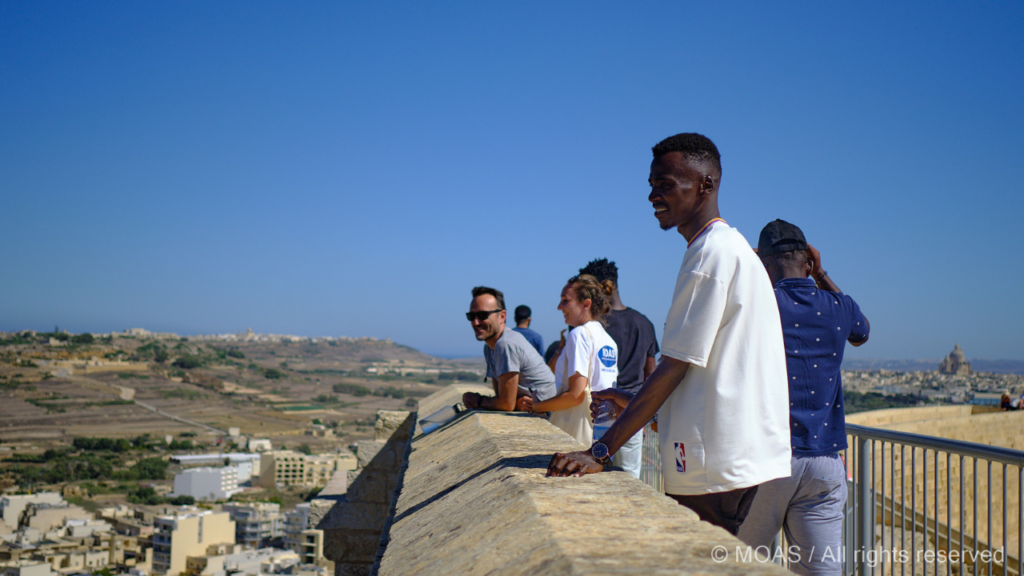With the advent of the 2030 Sustainable Development Agenda’s call to “leave no one behind, ” integration has become an increasingly discussed topic within the political realm.
Defined as the process by which immigrants become accepted into society, both as individuals and as groups, integration is measured in terms of employment, education, health, social inclusion and active citizenships in the hosting country. Integration is key to maximizing the opportunities of migration and making the most of the contributions that immigration can make to economic, social and cultural societal development. However, it must be remembered that the responsibility for integration rests not with one group, but rather with many actors, including the host government, institutions, local communities, charities, and non-governmental organizations, to name a few.
How does integration work?
There are two parties involved in the integration process, migrants and the receiving society and, as specified by the European Council, integration occurs in the public and private realms, across generations, and at the individual, family, and general community and State levels. Consequently, a successful integration policy must engage the local, regional, and national institutions, as well as communities.
Unfortunately, all too often, migration and integration policies have been driven by short to medium-term political and national interests. However, as at no time in history we have experienced the levels of migration currently underway, to assist and encourage migrants to fully integrate into a destination country and participate in its economy, we must start thinking about long-term ideas and solutions for better integration. For example, from a national perspective, local governments could create initiatives and programs to offer direct support to migrants who have just arrived or who have been residing in the country for longer periods of time. These could include information sessions on how to secure housing or employment, how to access the national health system and education, or how to become financially independent. Moreover, language classes for all levels should be organized by national authorities because, as it has been argued, learning the host country’s language help develop a sense of belonging. On a global scale, states should come together to strengthen international cooperation to improve migrant integration because despite progress in this regard has been made, many challenges still remain.
What is MOAS doing?
To promote and encourage integration between the local communities and the migrant community, MOAS is running an integration process in Malta. By collaborating with other non-governmental organizations, charities, and government agencies, MOAS aims at organizing educational and cultural events and activities on the Island, to foster independence and collaboration amongst communities in Malta and cultivate wider integration. Every day our needs shift and, at MOAS, we try to make sure that we have the adaptability and flexibility to meet those needs, so that we may help long-term integration.
MOAS is also working to establish Information and Learning spaces inside the Open Centres in Malta, where residents will have access to educational facilities such as books, computers, and training opportunities. Long-term use of such facilities will support the integration of residents into the wider community and the transition from the supported living of the centers into independence and contribution to the wider community through increased education, language skills, ability to engage with outside services, establish future plans (such as identify alternative accommodation) and find employment.
In 2021 MOAS launched also the Family Hosting & Sponsorship project, in which migrants willing to study are matched with local host families. The initiative is dedicated to refugees and asylum seekers who wish to complete an educational path but don’t have access to adequate financial and housing support – or simply need a local sponsor who can guide them and offer social support and family interactions to further promote independence and integration.
Through the provision of English for beginners courses, refugees and asylum seekers can learn conversational language skills and boost, therefore, the capacity to integrate into the local community and have better access to available resources.
Final thoughts
National agencies are important actors that play a fundamental part in the integration process. However, there are numerous other parties that can influence the integration process. These include non-governmental organizations like MOAS. We will continue to work and develop projects that can help promote better integration of the migrant communities and become an active part of the local society, becoming important resources.
If you are interested in the work of MOAS and our partners, please follow us on social media, sign up to our newsletter and share our content. You can also reach out to us any time via [email protected]. If you want to support our operations, please give what you can at www.moas.eu/donate

